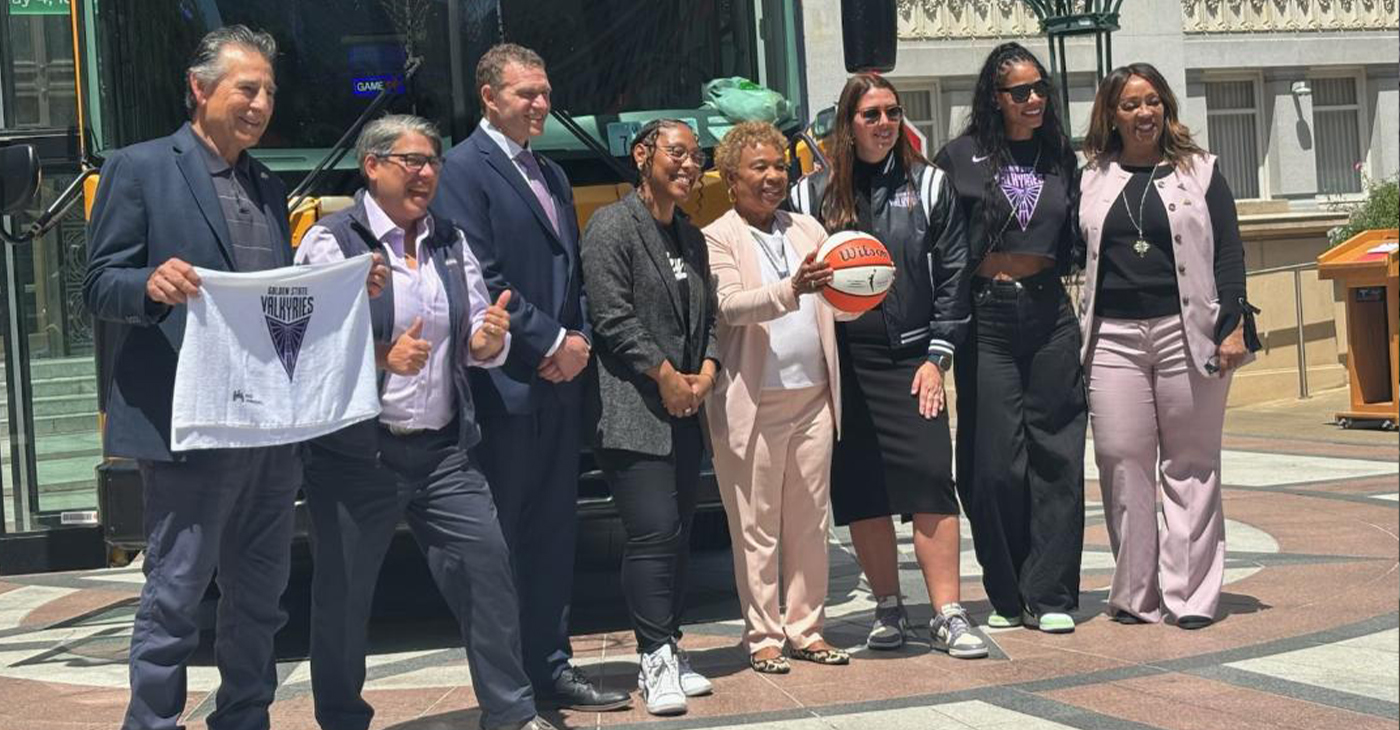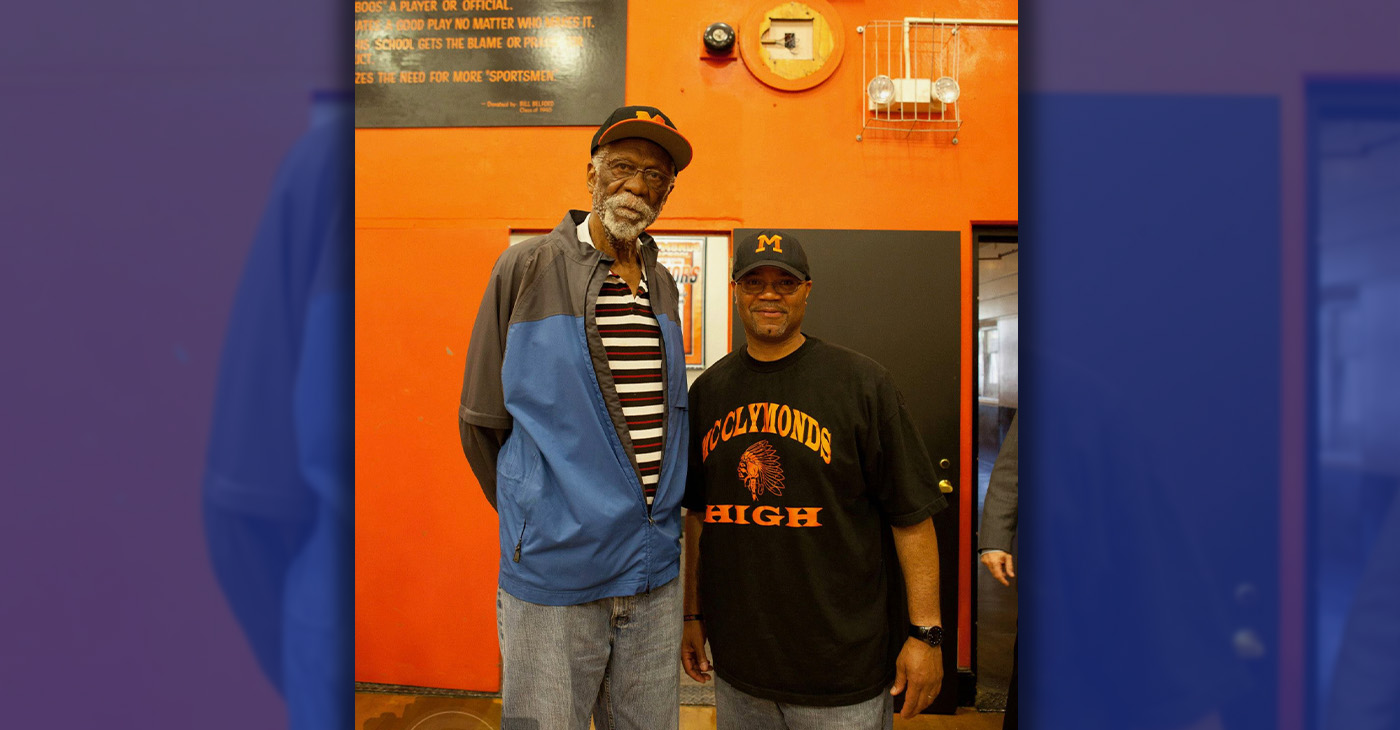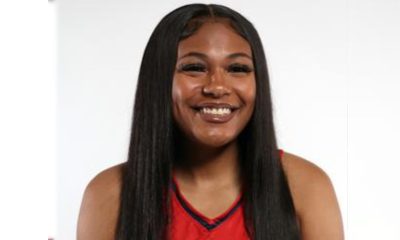Sports
Head of NCAA Enforcement: Academic Misconduct on Rise

In this Aug. 26, 2010, file photo, then-North Carolina chancellor Holden Thorp, center, listens as then-UNC athletic director Dick Baddour, right, talks during a news conference with then-UNC head coach Butch Davis, left, about possible academic misconduct regaring the college football program in Chapel Hill, N.C. (AP Photo/The News & Observer, Ethan Hyman, File)
RALPH D. RUSSO, AP College Football Writer
The head of NCAA enforcement says academic misconduct is on the rise in college athletics and his department is currently handling 20 open investigations.
Vice president of enforcement Jon Duncan said Wednesday in an interview with The Associated Press the cases involve both prospective and incoming athletes trying to become eligible for college competition, and enrolled athletes receiving impermissible assistance from university and athletic department personnel.
Eighteen of the cases involve Division I schools, though NCAA policy precludes Duncan from revealing which programs are under investigation.
North Carolina has been the focus of the NCAA’s most high-profile infractions case involving academics. Last year an independent investigator found that hundreds of Tar Heels athletes over nearly two decades were steered toward sham classes that gave out high grades for little work. In the last four months, Weber State football and Georgia swimming have been sanctioned by the NCAA for academic misconduct violations.
Duncan said reasons for the uptick are difficult to pinpoint, but he speculated potential contributors are raised academic standards for athletes and recent reforms that tie academic performance to a team’s postseason eligibility.
More digital and online course work “creates opportunities for mischievous behavior,” Duncan said. Though electronic fingerprints and digital trails can also aide in investigations.
Also, cheating seems to be more common campus-wide, not just in the athletic department, Duncan said.
“None of what’s happened here has surprised us,” said Duncan, who took over enforcement in 2013. “In fact, it’s why we created the academic integrity unit in 2013, because we saw this on the horizon and we wanted to be in a position to deal with it proactive rather than reacting to it. Whatever the drivers were.”
Academic misconduct investigations can be challenging because not all cheating by a student-athlete breaks NCAA rules.
Notre Dame had four football players suspended all of last season because of academic misconduct. The school needed to report the incident to the NCAA, though ultimately it was a violation of the university’s honor code that cost the players the season.
For academic impropriety to become an NCAA violation at least one of three factors must be involved:
— Involvement by members of an institution or athletic department staff.
— An athlete is treated differently than the general student population.
— Academic misconduct led to an award of credit that allowed an athlete to compete when he or she would have otherwise been ineligible.
“It’s easy to talk about those different buckets and categories in sort of scholarly, academic conversation, but they don’t come to us packaged and labeled as falling into and out of those categories,” Duncan said. “We have to spend a lot of time, dedicate a lot of resources, look at a lot of paper and perhaps conduct a number of interviews to determine whether we’re in one of those categories or not.”
West Virginia University director of compliance Keli Cunningham said the challenge for those on campus comes in the tracking.
“It’s not like monitoring areas such as a prospect’s visit to campus where you can see an expense statement and know if someone received a meal and shouldn’t have or monitoring phone calls where you can see a coach’s phone bill and know if he/she made too many phone calls,” Cunningham said in an email. “If a staff member works closely with a student-athlete and that student-athlete receives a high grade for the course, that doesn’t mean that the staff member acted unethically and triggered academic misconduct.”
Kathy Sulentic, who leads the NCAA’s academic integrity unit, said they are seeing two themes in the academic cases being investigated.
“What we’re seeing are people who have an association with the program, by people it could be anybody from a professor, a campus adviser, a registrar, a teaching assistant, who has a relationship with the athletic department or a particular sports program and they use that relationship in an effort to — and I’m using air quotes here — to help a student-athlete engage in misconduct,” she said.
The second scenario stems from coaches delivering directives to coaching and support staff members about an athlete’s academics.
“And the coach will say, ‘We need to get this student athlete eligible.’ Not telling them exactly what to do but saying we need this young man or young women and some sort of academic misconduct occurs,” Sulentic said.
Enforcement staff does not make NCAA bylaws though it can help guide membership to where it wants to go with legislation.
The NCAA has been going through a stage of deregulation as it tries to simplify its bylaws, but that’s not necessarily the case when it comes to academics.
“The conversations that we have been in and that we have heard have not been deregulatory in nature,” Duncan said. “They’re just trying to find a way to distinguish between what is an NCAA matter and what is not.”
___
Follow Ralph D. Russo at www.Twitter.com/ralphDrussoAP
Copyright 2015 The Associated Press. All rights reserved. This material may not be published, broadcast, rewritten or redistributed.
Alameda County
Seth Curry Makes Impressive Debut with the Golden State Warriors
Seth looked comfortable in his new uniform, seamlessly fitting into the Warriors’ offensive and defensive system. He finished the night with an impressive 14 points, becoming one of the team’s top scorers for the game. Seth’s points came in a variety of ways – floaters, spot-up three-pointers, mid-range jumpers, and a handful of aggressive drives that kept the Oklahoma City Thunder defense on its heels.

By Y’Anad Burrell
Tuesday night was anything but ordinary for fans in San Francisco as Seth Curry made his highly anticipated debut as a new member of the Golden State Warriors. Seth didn’t disappoint, delivering a performance that not only showcased his scoring ability but also demonstrated his added value to the team.
At 35, the 12-year NBA veteran on Monday signed a contract to play with the Warriors for the rest of the season.
Seth looked comfortable in his new uniform, seamlessly fitting into the Warriors’ offensive and defensive system. He finished the night with an impressive 14 points, becoming one of the team’s top scorers for the game. Seth’s points came in a variety of ways – floaters, spot-up three-pointers, mid-range jumpers, and a handful of aggressive drives that kept the Oklahoma City Thunder defense on its heels.
One of the most memorable moments of the evening came before Seth even scored his first points. As he checked into the game, the Chase Center erupted into applause, with fans rising to their feet to give the newest Warrior a standing ovation.
The crowd’s reaction was a testament not only to Seth’s reputation as a sharpshooter but also to the excitement he brings to the Warriors. It was clear that fans quickly embraced Seth as one of their own, eager to see what he could bring to the team’s championship aspirations.
Warriors’ superstar Steph Curry – Seth’s brother – did not play due to an injury. One could only imagine what it would be like if the Curry brothers were on the court together. Magic in the making.
Seth’s debut proved to be a turning point for the Warriors. Not only did he contribute on the scoreboard, but he also brought a sense of confidence and composure to the floor.
While their loss last night, OKC 124 – GSW 112, Seth’s impact was a game-changer and there’s more yet to come. Beyond statistics, it was clear that Seth’s presence elevated the team’s performance, giving the Warriors a new force as they look to make a deep playoff run.
Barbara Lee
WNBA’s Golden State Valkyries Kick Off Season with Community Programs in Oakland
“The Golden State Valkyries are more than a team—they’re a movement,” said Oakland Interim-Mayor Kevin Jenkins. “Their touchdown in Oakland marks a new era of opportunity, inspiration, and equity in sports. This partnership reflects our city’s deep commitment to uplifting women, investing in youth, and building a community where every dream has a place to grow. We’re proud to welcome the Valkyries to The Town.”

Team installs new nets at playgrounds, holds flag-raisings at City Halls in Oakland and S.F.
Special to The Post
The Golden State Valkyries brought the excitement of their inaugural season to every corner of the Bay Area with a full slate of community celebrations leading up to their historic home-opener against the Los Angeles Sparks at the Chase Center in San Francisco on Friday.
The week featured flag-raising ceremonies at city halls in Oakland and San Francisco, three “Violet Net” installation days at Oakland parks to encourage basketball play, fun “Hoopbus” takeovers at multiple schools presented by Kaiser Permanente, and player appearances.
“The Golden State Valkyries are more than a team—they’re a movement,” said Oakland Interim-Mayor Kevin Jenkins. “Their touchdown in Oakland marks a new era of opportunity, inspiration, and equity in sports. This partnership reflects our city’s deep commitment to uplifting women, investing in youth, and building a community where every dream has a place to grow. We’re proud to welcome the Valkyries to The Town.”
In total, 90 violet nets were installed on 45 basketball courts across 34 public parks throughout Oakland this week. A list of the parks receiving violet nets can be found at Valkyries.com.
About the Golden State Valkyries
The Golden State Valkyries, the WNBA affiliate of the seven-time NBA Champion Golden State Warriors, were announced as the 13th WNBA franchise on Oct. 5, 2023. According to Norse mythology, Valkyries are a host of warrior women who are fearless and unwavering – flying through air and sea alike.
This brand is Golden State’s modern interpretation of Valkyries: strong, bold, and fierce. Tipping off during the 2025 WNBA season, the team is headquartered in Oakland and will play home games at Chase Center in San Francisco. For Golden State Valkyries’ assets, including team logos, visit valkyries.com.
Activism
McClymonds High Names School Gym for Star Graduate, Basketball Legend Bill Russell
William “Bill” Felton Russell was born on Feb. 12, 1934, and died on July 31, 2022. He achieved fame as a U.S. professional basketball player who played center for the Boston Celtics of the National Basketball Association (NBA) from 1956 to 1969. He was the centerpiece of the Celtics dynasty that won 11 NBA championships during his 13-year career.

By Ken Epstein
West Oakland’s McClymonds High School, “the School of Champions,” this week named the school’s gymnasium in honor of one of its most famous graduates, basketball legend Bill Russell (class of ’52).
William “Bill” Felton Russell was born on Feb. 12, 1934, and died on July 31, 2022. He achieved fame as a U.S. professional basketball player who played center for the Boston Celtics of the National Basketball Association (NBA) from 1956 to 1969. He was the centerpiece of the Celtics dynasty that won 11 NBA championships during his 13-year career.
Russell is widely known as one of the greatest basketball players of all time. In 2011, he received the Presidential Medal of Freedom, the country’s highest civil honor, from President Barack Obama for Russell’s contributions to basketball and the Civil Rights Movement.
The McClymonds’ naming ceremony was held on Wednesday, the same day as Russell’s birthday. Oakland leader Bill Patterson, a longtime friend of Russell’s, was scheduled to cut the ribbon at the reopening of the gym, which had been closed for several months for renovation. Russell’s daughter Karen was scheduled to attend the ribbon cutting.
Russell’s name and signature are now printed on the gymnasium floor.
Patterson was working at DeFremery Park when he met Russell. “I befriended him as a boy and during his years at University of San Francisco” said Patterson. “We stayed friends for the rest of his life.”
Said McClymonds Principal Darielle Davis, herself a McClymonds graduate, “We are excited to honor Bill Russell for his sports accolades and because he broke color barriers. He is part of our legacy, and legacy is really important at McClymonds.”
Brian McGhee, community schools manager at McClymonds and former football player at UC Berkeley, said that Russell meant a lot to him and others at the school. “He was a beacon of light and hope for West Oakland,” he said. “He did a lot for sports and for civil rights.”
Starting in 2018, Ben “Coach” Tapscott worked with Patterson and other McClymonds grads, community members, and former coaches to encourage the Oakland Board of Education to endorse the naming of the school gym, which finally happened recently.
“We worked hard to make this happen,” said Tapscott. “He’s an important part of McClymond’s history, along with a lot of other famous graduates,” he said.
-

 Activism3 weeks ago
Activism3 weeks agoDesmond Gumbs — Visionary Founder, Mentor, and Builder of Opportunity
-

 Activism3 weeks ago
Activism3 weeks agoFamilies Across the U.S. Are Facing an ‘Affordability Crisis,’ Says United Way Bay Area
-

 Alameda County3 weeks ago
Alameda County3 weeks agoOakland Council Expands Citywide Security Cameras Despite Major Opposition
-

 Alameda County3 weeks ago
Alameda County3 weeks agoBling It On: Holiday Lights Brighten Dark Nights All Around the Bay
-

 Activism3 weeks ago
Activism3 weeks agoBlack Arts Movement Business District Named New Cultural District in California
-

 Activism3 weeks ago
Activism3 weeks agoLu Lu’s House is Not Just Toying Around with the Community
-

 Activism4 weeks ago
Activism4 weeks agoOakland Post: Week of December 17 – 23, 2025
-

 Activism2 weeks ago
Activism2 weeks agoFirst 5 Alameda County Distributes Over $8 Million in First Wave of Critical Relief Funds for Historically Underpaid Caregivers



















































